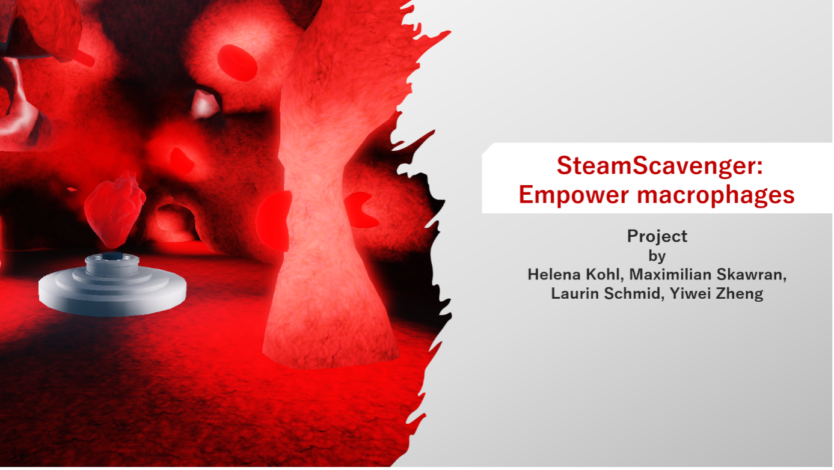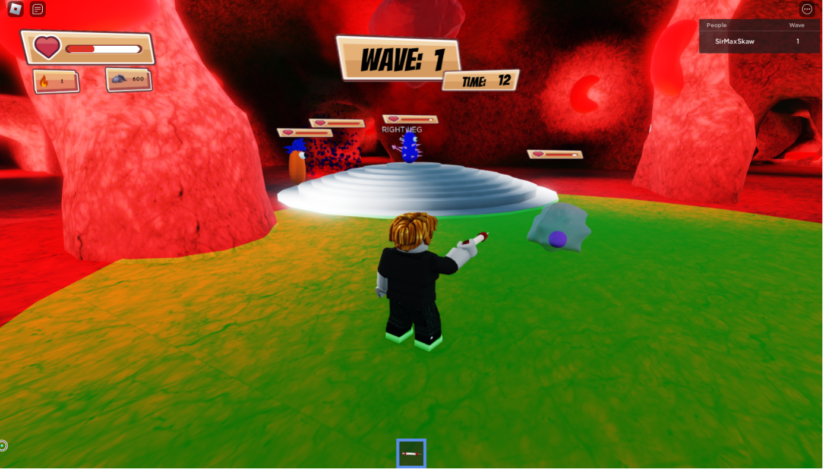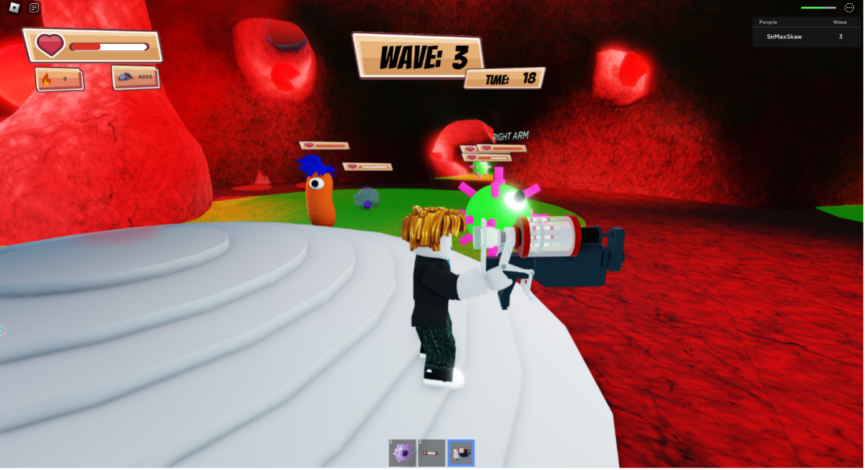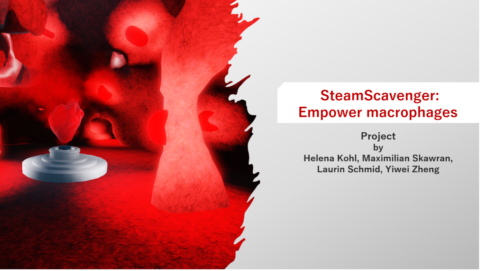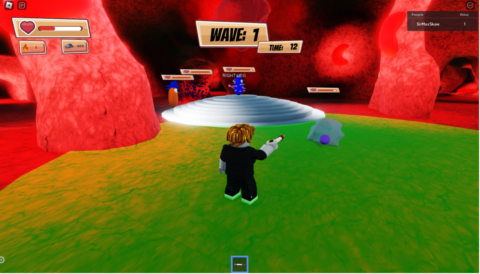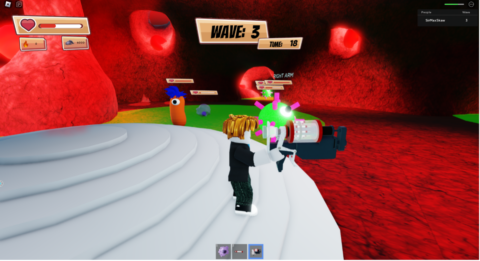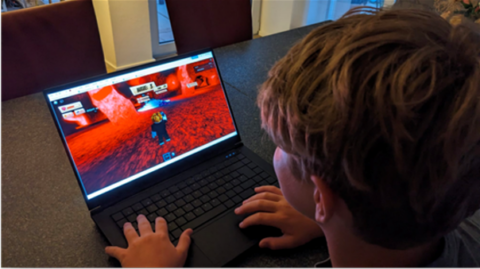Inflammania 3D – SteamScavengers: Empower macrophages
Challenge:
Game platforms, such as Roblox or Minecraft, are gaining popularity in education as they facilitate the creation of social and immersive learning experiences. However, the potential of this emerging phenomenon for science communication and supporting trust in science has hardly been considered so far. In cooperation with FAU’s Collaborative Research Centre 1181 (CRC1181) we thus develop several connected 3D mini-games that immerse players in the fascinating world of the immune system, increase their understanding of inflammatory mechanisms, and convey knowledge about the latest research of the CRC1181. Accordingly, in summer semester 2023 we gave students of the lecture “Designing Gamified Systems” the following challenge:
Design a strategy game in which the players take over the role of the immune system, make strategic decisions in order to win and learn more about the role of the protein IL-33 and how the immune system is using inflammations to eliminate attackers (for instance, bacteria) and set repair mechanisms in motion.
Reference should be made to current research of the SFB, in particular to the publication “Faas et al., 2021, IL-33-induced metabolic reprogramming controls the differentiation of alternatively activated macrophages and the resolution of inflammation, Immunity 54, 2531-2546. DOI: https://doi.org/10.1016/j.immuni.2021.09.010” .
Lecture: Designing Gamified Systems
Date: Summer semester 2023
Results:
Inflammania 3D – SteamScavengers: Empower macrophages
Team: Maximilian Skawran, Helena Kohl, Laurin Schmid, Yiwei Zheng
Abstract:
This project aims at the development of a video game that conveys biological knowledge in an entertaining and engaging way. It is based on research conducted at the University Clinic in Erlangen, which investigated how macrophages and IL-33 contribute to the resolution of inflammation. We wanted to make these complex biological processes understandable in a way that is accessible to children.
Since children typically do not have extensive knowledge of biology and have limited interest in conventional learning methods, we tackled this challenge with a gamification approach. The mission was to preserve the scientific accuracy of the biological information while creating an engaging game experience. For this reason, this project is based not only on biological research, but also on various gamification theories. In this way, we ensured that the focus is on the fun of the game, while at the same time providing continuous learning outcomes for the players.
As a result, we developed a game in which players navigate the human body as its immune system. They must protect the heart from various bacteria and viruses by strategically deploying macrophages and using the power of IL-33 to ensure their own survival. To implement this idea, we used Roblox, a popular online platform where users can create, share, and play games designed by others in a virtual environment.
